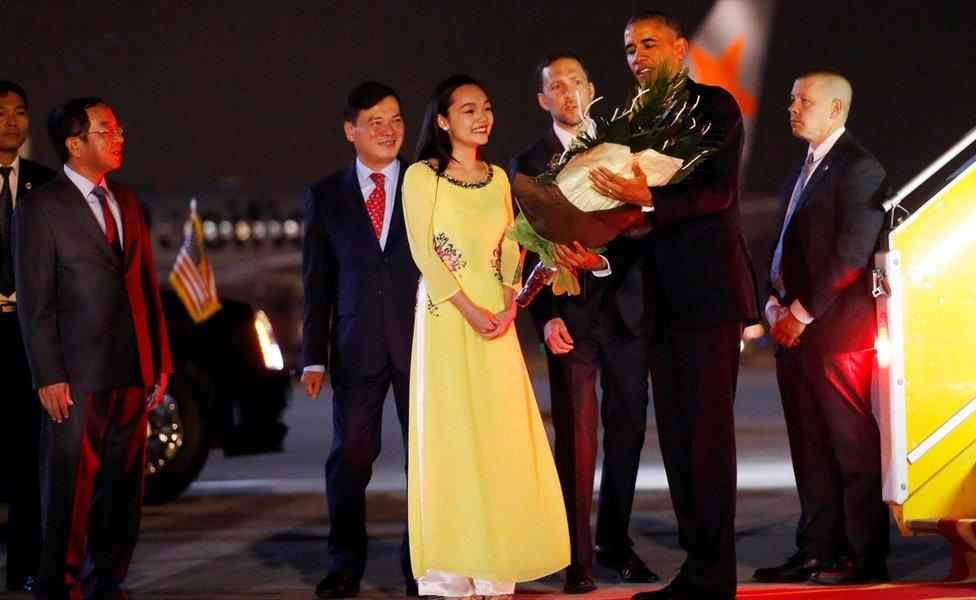Obama in Vietnam: Arms and trade deal on agenda as trip begins
- Published

Mr Obama is the first president in 10 years to visit Vietnam, and the third since the war ended
Barack Obama has arrived for the start of his three-day visit to Vietnam, only the third by a sitting US president since the end of the Vietnam War.
The trip comes amid warming ties between the countries as the US seeks to build relations with Pacific allies.
Vietnam is keen for the US to lift an arms embargo that has been in place since 1984.
Mr Obama will later fly to Japan for a G7 summit. He will also become the first US president to visit Hiroshima.
Vietnamese embrace new US relations
While in Vietnam, Mr Obama is expected to meet dissidents and make the case for Vietnam to remove obstacles to the US-led Trans Pacific Partnership (TPP) free trade deal.
Ben Rhodes, Mr Obama's deputy national security adviser, said before the visit that talks on removing the United States' embargo on selling arms to Vietnam would be discussed.
Doing so would allow Vietnam to bolster its defences at a time of territorial disputes with its neighbour China, which was unhappy with a partial lifting of the ban in 2014.
However, White House officials indicated the ban would be lifted only if there was an improvement in human rights in Vietnam.
On Friday, Mr Obama will tour Hiroshima, where a US nuclear bomb was detonated in 1945, killing at least 140,000 people.
In an interview with Japanese broadcaster NHK on Friday, Mr Obama said he would not apologise during his remarks in Hiroshima.
"It's important to recognise that in the midst of war, leaders make all kinds of decisions, it's a job of historians to ask questions and examine them," he said.
"But I know, as somebody who's now sat in this position for the last seven-and-a-half years, that every leader makes very difficult decisions, particularly during wartime."
- Published4 September 2015
- Published23 January 2017
- Published7 April 2013